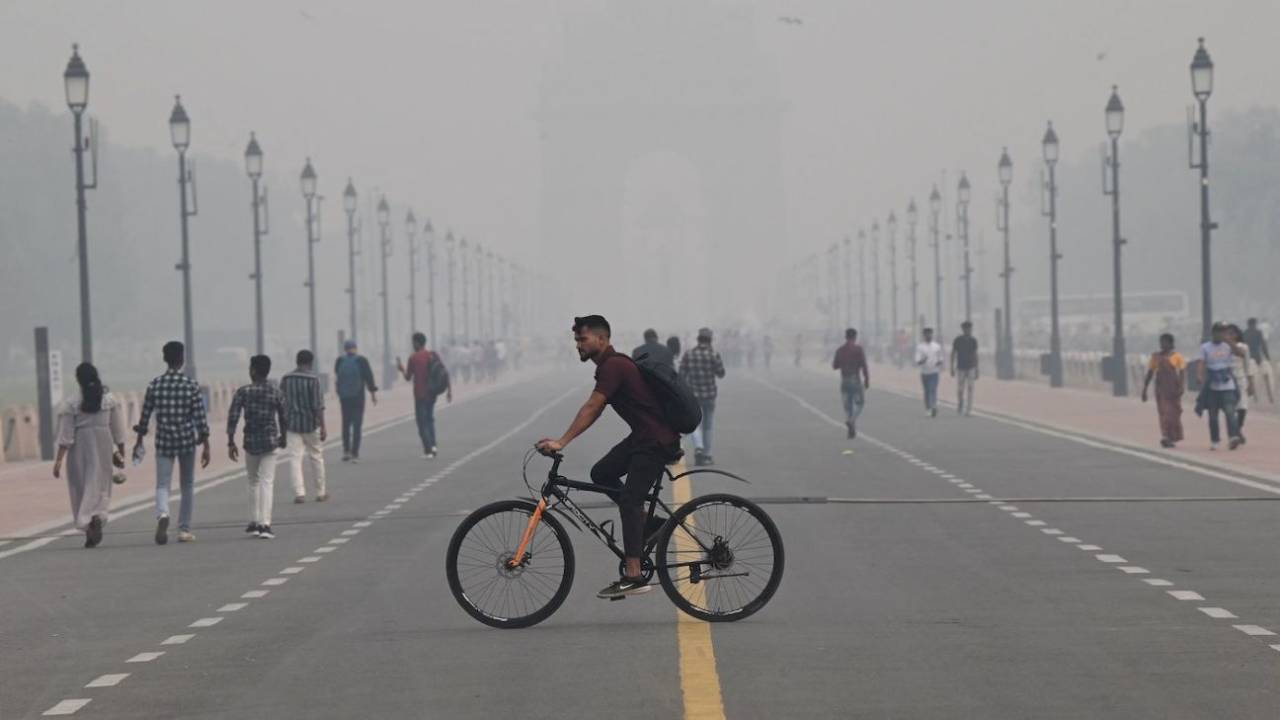Explained: Could Delhi's poor air quality force the ICC to cancel Bangladesh vs SL?
From consulting pulmonologists to asking players to sit indoors, the ICC and event organisers are taking other steps too to help the players
A view of India Gate through the smog and air pollution in Delhi • AFP via Getty Images
The ICC's protocols
Since the 2017 Delhi Test between Sri Lanka and India, in which many players had vomited after stints in the field, and other reported respiratory problems, the ICC drew up guidelines in which poor air quality would be treated the same as weather events that impede play, or compromise player safety, such as rain, or lightning.
What happens on match day?
With monitoring ongoing at the stadium itself, match officials, in concert with medical staff, will take a call on when conditions are suitable for play. Because air quality is being considered as essentially a part of the weather by the ICC, the toss is expected to happen at 1:30pm local, and so long as the ICC and the medical staff consider the air quality suitable for play, the match will begin at 2pm.

How can organisers help?
They will urge players to remain in the dressing rooms, where air purifiers will be operational, rather than in the outdoor dugout, where those who run drinks in particular, usually sit. They will also use sprinklers to lower the pollutants in the immediate playing area. Rain has often helped substantially reduce pollutants in the air, but to what extent sprinklers can do the same, and for how long, is unclear.
Has there ever been a pollution-shortened game before?
Although that Test in 2017 had seen long medical delays, there have been no limited-overs internationals that have been shortened because of pollution. Cricket, to some extent is shooting in the dark here. Although the ICC is consulting a pulmonologist (lung specialist), there is not a lot of data as to what constitutes safe air quality conditions for cricket, particularly given there are different cardiovascular workloads on fast bowlers, batters, spinners, and wicketkeepers.
Where does this leave the actual cricket?
Both teams have tried to have as many practice sessions before this match as possible, partly because they are both perceived to have underperformed by their home fans, and feel as if they must be seen as working hard. With Champions Trophy qualification on the line, Bangladesh need this match to happen more than Sri Lanka (Bangladesh have two points this World Cup), but Sri Lanka would like the chance at two points too.
What have the team said about air quality?
Sri Lanka team manager Mahinda Halangoda: "Definitely we will be looking at the index. We will be guided by the ICC. They have a medical panel here. We will be guided by their instruction. When we came here today we were wearing masks, and we were told to wear masks. It depends on how the outside index is, and then we'll make a call."
Andrew Fidel Fernando is ESPNcricinfo's Sri Lanka correspondent. @afidelf
